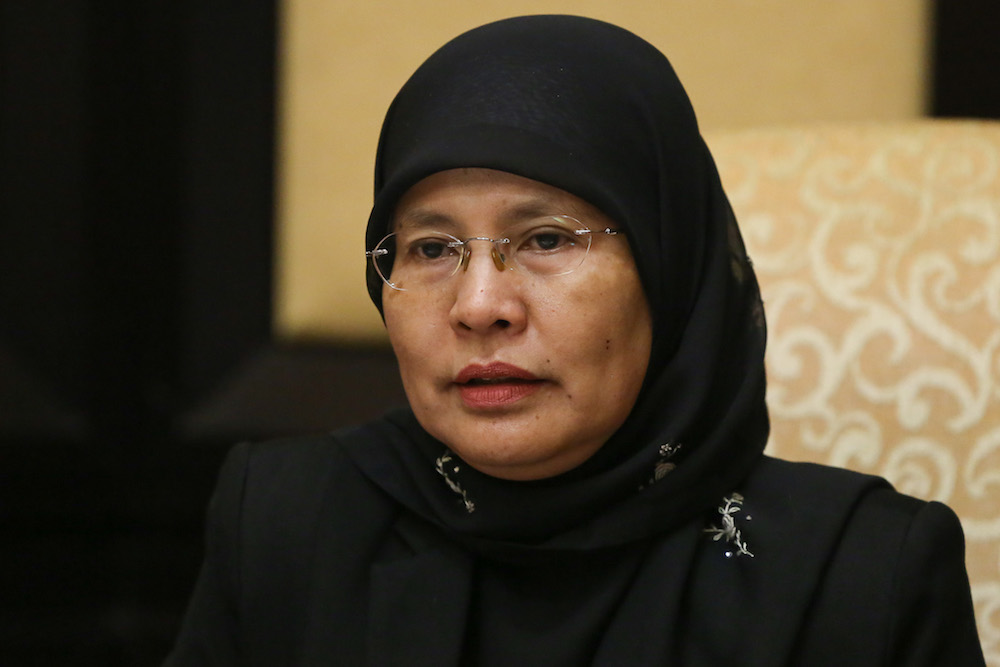PUTRAJAYA, July 10 — The court does not have the power to direct or urge the public prosecutor to file or withdraw charges against any party in criminal cases,” said Chief Justice Tan Sri Tengku Maimun Tuan Mat.
“The court cannot force or push the prosecution to proceed with a trial on a charge brought in court, if the prosecution has decided to drop or withdraw the charge,” she said.
“This is the legal situation in our country,” she said in her speech at the taking-of-oath of office and loyalty ceremony of Federal Court and Appeals Court judges, as well as judicial commissioners held at the Conference Hall in the Palace of Justice.
She said just because there were third parties who disagreed with the prosecutor’s decision not to proceed with the charges which had been filed in court, this does not mean that court or judges had acted dishonestly, conspired, were in favour of any particular party or were involved in corrupt practices.
“It is deeply saddening and extremely disturbing that of late, the judiciary had been repeatedly criticised only because the prosecutor, in exercising their discretionary power under Article 15 Clause (3) of the Federal Constitution, had decided to withdraw some charges in some high-profile cases,” said Tengku Maimun.
Tengku Maimun said the decision could only be made by the public prosecutor, not by other parties, including the court.
Tengku Maimun said readers have no way of confirming the validity of what had been written and would assume that whatever written on social media were true.
In her speech, she stressed that the Judiciary had never taken the stand that judges should not be criticised instead she said, the Judiciary was ready to accept constructive criticism on decisions made by the courts.
“The Judiciary is responsible to the community and any constructive criticism can further improve quality in executing justice,” she said.
However, Tengku Maimun said the criticism should be honest and with reasonable courtesy within the limits of the law.
She added that judges should not pick and choose disputes that they wish to hear.
“We adjudicate all cases that come before us. We are therefore bound to hear cases which attract public attention and which involve political figures, from whichever side of the divide,” said Tengku Maimun who added that judges do not decide cases based on popular public views but decide cases based on evidence and the law.
She said the reality is that, no matter how impartial judges are or how detached judges are from politics, their decisions would be viewed from a political perspective or with a political flavour, because unfortunately, public perception of the Judiciary is shaped by the political landscape.
“In that regard, we must be prepared to withstand public scrutiny and be prepared to swallow the hurtful, unfair and baseless allegations against us, if our decisions do not tally with public opinion,” she said. — Bernama



















